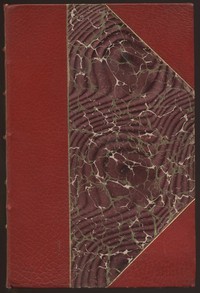Old Mortality, Volume 2. by Walter Scott (most important books to read txt) 📗

- Author: Walter Scott
Book online «Old Mortality, Volume 2. by Walter Scott (most important books to read txt) 📗». Author Walter Scott
"That," said Lord Evandale, "is an unanswerable argument, since it shows me that my residence here may be useful, even in my present disabled state."
"For your wounds, my lord," said the Major, "if my sister, Lady Bellenden, will undertake to give battle to any feverish symptom, if such should appear, I will answer that my old campaigner, Gideon Pike, shall dress a flesh-wound with any of the incorporation of Barber-Surgeons. He had enough of practice in Montrose's time, for we had few regularly-bred army chirurgeons, as you may well suppose.—You agree to stay with us, then?"
"My reasons for leaving the Castle," said Lord Evandale, glancing a look towards Edith, "though they evidently seemed weighty, must needs give way to those which infer the power of serving you. May I presume, Major, to enquire into the means and plan of defence which you have prepared? or can I attend you to examine the works?"
It did not escape Miss Bellenden, that Lord Evandale seemed much exhausted both in body and mind. "I think, sir," she said, addressing the Major, "that since Lord Evandale condescends to become an officer of our garrison, you should begin by rendering him amenable to your authority, and ordering him to his apartment, that he may take some refreshment ere he enters on military discussions."
"Edith is right," said the old lady; "you must go instantly to bed, my lord, and take some febrifuge, which I will prepare with my own hand; and my lady-in-waiting, Mistress Martha Weddell, shall make some friar's chicken, or something very light. I would not advise wine.—John Gudyill, let the housekeeper make ready the chamber of dais. Lord Evandale must lie down instantly. Pike will take off the dressings, and examine the state of the wounds."
"These are melancholy preparations, madam," said Lord Evandale, as he returned thanks to Lady Margaret, and was about to leave the hall,—"but I must submit to your ladyship's directions; and I trust that your skill will soon make me a more able defender of your castle than I am at present. You must render my body serviceable as soon as you can, for you have no use for my head while you have Major Bellenden."
With these words he left the apartment.
"An excellent young man, and a modest," said the Major.
"None of that conceit," said Lady Margaret, "that often makes young folk suppose they know better how their complaints should be treated than people that have had experience."
"And so generous and handsome a young nobleman," said Jenny Dennison, who had entered during the latter part of this conversation, and was now left alone with her mistress in the hall, the Major returning to his military cares, and Lady Margaret to her medical preparations.
Edith only answered these encomiums with a sigh; but, although silent, she felt and knew better than any one how much they were merited by the person on whom they were bestowed. Jenny, however, failed not to follow up her blow.
"After a', it's true that my lady says—there's nae trusting a presbyterian; they are a' faithless man-sworn louns. Whae wad hae thought that young Milnwood and Cuddie Headrigg wad hae taen on wi' thae rebel blackguards?"
"What do you mean by such improbable nonsense, Jenny?" said her young mistress, very much displeased.
"I ken it's no pleasing for you to hear, madam," answered Jenny hardily; "and it's as little pleasant for me to tell; but as gude ye suld ken a' about it sune as syne, for the haill Castle's ringing wi't."
"Ringing with what, Jenny? Have you a mind to drive me mad?" answered Edith, impatiently.
"Just that Henry Morton of Milnwood is out wi' the rebels, and ane o' their chief leaders."
"It is a falsehood!" said Edith—"a most base calumny! and you are very bold to dare to repeat it to me. Henry Morton is incapable of such treachery to his king and country—such cruelty to me—to—to all the innocent and defenceless victims, I mean, who must suffer in a civil war—I tell you he is utterly incapable of it, in every sense."
"Dear! dear! Miss Edith," replied Jenny, still constant to her text, "they maun be better acquainted wi' young men than I am, or ever wish to be, that can tell preceesely what they're capable or no capable o'. But there has been Trooper Tam, and another chield, out in bonnets and grey plaids, like countrymen, to recon—reconnoitre—I think John Gudyill ca'd it; and they hae been amang the rebels, and brought back word that they had seen young Milnwood mounted on ane o' the dragoon horses that was taen at Loudon-hill, armed wi' swords and pistols, like wha but him, and hand and glove wi' the foremost o' them, and dreeling and commanding the men; and Cuddie at the heels o' him, in ane o' Sergeant Bothwell's laced waistcoats, and a cockit hat with a bab o' blue ribbands at it for the auld cause o' the Covenant, (but Cuddie aye liked a blue ribband,) and a ruffled sark, like ony lord o' the land—it sets the like o' him, indeed!"
"Jenny," said her young mistress hastily, "it is impossible these men's report can be true; my uncle has heard nothing of it at this instant."
"Because Tam Halliday," answered the handmaiden, "came in just five minutes after Lord Evandale; and when he heard his lordship was in the Castle, he swore (the profane loon!) he would be d—d ere he would make the report, as he ca'd it, of his news to Major Bellenden, since there was an officer of his ain regiment in the garrison. Sae he wad have said naething till Lord Evandale wakened the next morning; only he tauld me about it," (here Jenny looked a little down,) "just to vex me about Cuddie."
"Poh, you silly girl," said Edith, assuming some courage, "it is all a trick of that fellow to teaze you."
"Na, madam, it canna be that, for John Gudyill took the other dragoon (he's an auld hard-favoured man, I wotna his name) into the cellar, and gae him a tass o' brandy to get the news out o' him, and he said just the same as Tam Halliday, word for word; and Mr Gudyill was in sic a rage, that he tauld it a' ower again to us, and says the haill rebellion is owing to the nonsense o' my Leddy and the Major, and Lord Evandale, that begged off young Milnwood and Cuddie yesterday morning, for that, if they had suffered, the country wad hae been quiet—and troth I am muckle o' that opinion mysell."
This last commentary Jenny added to her tale, in resentment of her mistress's extreme and obstinate incredulity. She was instantly alarmed, however, by the effect which her news produced upon her young lady, an effect rendered doubly violent by the High-church principles and prejudices in which Miss Bellenden had been educated. Her complexion became as pale as a corpse, her respiration so difficult that it was on the point of altogether failing her, and her limbs so incapable of supporting her, that she sunk, rather than sat, down upon one of the seats in the hall, and seemed on the eve of fainting. Jenny tried cold water, burnt feathers, cutting of laces, and all other remedies usual in hysterical cases, but without any immediate effect.
"God forgie me! what hae I done?" said the repentant fille-de-chambre. "I wish my tongue had been cuttit out!—Wha wad hae thought o' her taking on that way, and a' for a young lad?—O, Miss Edith—dear Miss Edith, haud your heart up about it, it's maybe no true for a' that I hae said—O, I wish my mouth had been blistered! A' body tells me my tongue will do me a mischief some day. What if my Leddy comes? or the Major?—and she's sitting in the throne, too, that naebody has sate in since that weary morning the King was here!—O, what will I do! O, what will become o' us!"
While Jenny Dennison thus lamented herself and her mistress, Edith slowly returned from the paroxysm into which she had been thrown by this unexpected intelligence.
"If he had been unfortunate," she said, "I never would have deserted him. I never did so, even when there was danger and disgrace in pleading his cause. If he had died, I would have mourned him—if he had been unfaithful, I would have forgiven him; but a rebel to his King,—a traitor to his country,—the associate and colleague of cut-throats and common stabbers,—the persecutor of all that is noble,—the professed and blasphemous enemy of all that is sacred,—I will tear him from my heart, if my life-blood should ebb in the effort!"
She wiped her eyes, and rose hastily from the great chair, (or throne, as Lady Margaret used to call it,) while the terrified damsel hastened to shake up the cushion, and efface the appearance of any one having occupied that sacred seat; although King Charles himself, considering the youth and beauty as well as the affliction





Comments (0)